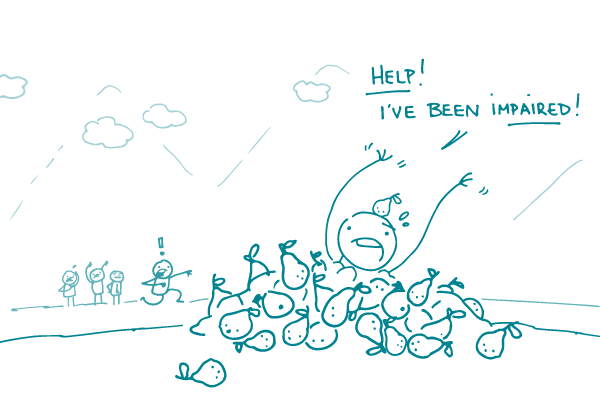
Dear readers, it’s time to return to our unofficial “use simpler words” series. Today’s word is a card-carrying member of the just-plain-vague club: “impaired.”
Most of the time, you can replace “impaired” with a specific description of what is actually impaired — and what that means for your reader. This will make your writing easier to understand, and you know how much we ❤ that.
Consider these examples:
- Drinking alcohol impairs a driver’s ability to react to things quickly, which can increase the risk of car accidents.
- This medicine may cause impaired kidney function.
Instead, try:
- Drinking alcohol causes you to react to things more slowly, which can make it more likely that you’ll be in a car accident.
- When you’re taking this medicine, your kidneys may not work as well.
But what about specific phrases that include “impaired” — like “people who are visually or hearing impaired”? In these cases, use the language that your audience uses. That might be “people who are blind or visually impaired” or “people who are deaf or hard of hearing.”
And, as always, if you absolutely must use the word “impaired,” be sure to explain or define it.
The bottom line: Don’t let “impaired” get in the way of clear writing.
Browse recent posts